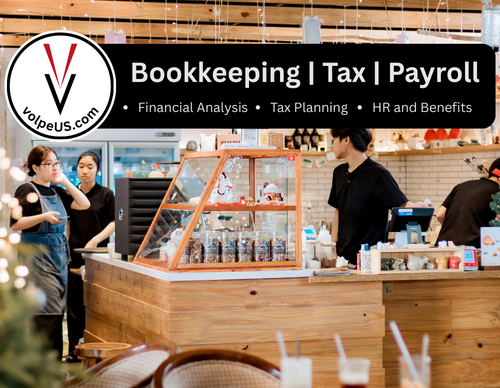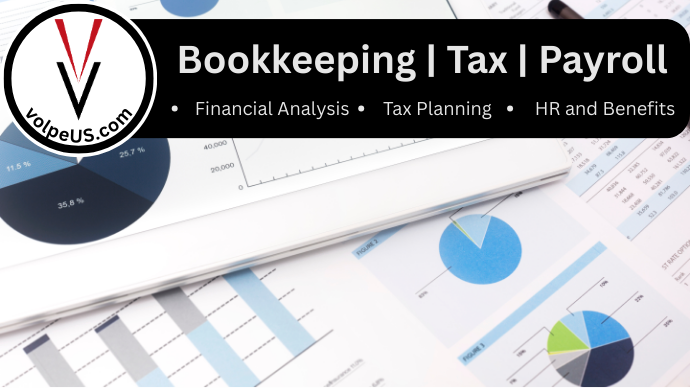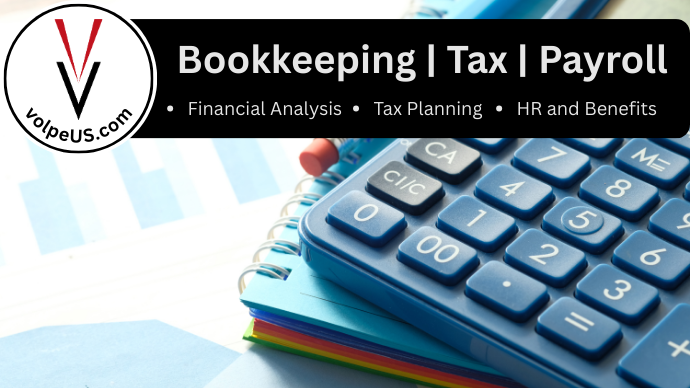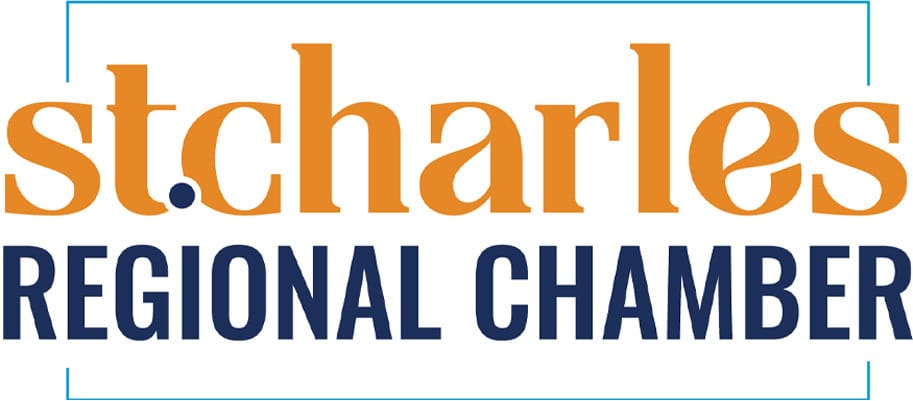Jump to a Specific Section
How to Achieve Financial Mastery Over Your Business
Running a successful business requires more than hard work and innovation—it demands financial mastery and sound strategies that guide decision-making, secure opportunities, and ensure sustainability. Tools like financial analysis, tax planning, bank packages, and business valuations provide a comprehensive framework for business owners to monitor performance, optimize taxes, attract funding, and plan for the future.
This article explores each of these essential services, detailing their importance, practical applications, and how they work together to support your business’s long-term success.
Financial Mastery through Financial Analysis

What Is a Financial Analysis?
Financial analysis involves evaluating your business’s financial data to gain a clear understanding of performance, identify strengths and weaknesses, and support decision-making. This includes examining three critical reports:
- Income Statements: Reveals revenue, expenses, and overall profitability.
- Balance Sheets: Provides a snapshot of assets, liabilities, and equity.
- Cash Flow Statements: Shows the movement of cash into and out of the business.
Why It Matters: Understand Your Business’s Health
- Data-Driven Decisions: Helps identify opportunities for cost-cutting, revenue growth, or operational efficiency.
- Improved Profitability: Pinpoints underperforming areas that can be optimized for better returns.
- Sustainable Growth: Tracks trends over time to anticipate challenges or capitalize on strengths.
How to Conduct Financial Analysis
- Review Historical Trends: Analyze 12 months of financial data to identify patterns in revenue and expenses. For instance, a seasonal business might see predictable peaks and troughs that require cash flow planning.
- Calculate Ratios:
- Profitability Ratios: Measure how effectively the business generates profit (e.g., gross profit margin).
- Liquidity Ratios: Assess short-term financial health (e.g., current ratio).
- Efficiency Ratios: Examine how well resources like inventory and receivables are managed.
- Benchmark Against Industry Standards: Compare your performance to similar businesses to spot areas of improvement or competitive advantages.
- Project Future Performance: Use forecasting models to estimate revenue, expenses, and cash flow for the next 12 months, accounting for expected changes like new hires or market shifts.
Example: A small retail business noticed declining cash flow despite steady sales. Through financial analysis, they discovered excessive inventory levels were tying up cash. Adjusting their purchasing practices improved cash flow by 20% in six months.
Financial Mastery through Tax Planning

What Is Tax Planning?
Tax planning involves implementing strategies to minimize your tax liability while staying compliant with tax laws. By understanding your business structure, deductions, and available credits, you can significantly reduce what you owe and reinvest those savings into growth.
Why It Matters: Strategize to Reduce Your Tax Burden
- Maximize Savings: Effective tax planning ensures you retain more of your earnings.
- Avoid Surprises: Prevent unexpected tax bills by planning for obligations in advance.
- Support Long-Term Goals: Align tax strategies with business goals like expansion, succession, or retirement.
Key Tax Strategies for SMBs and High-Net-Worth Individuals
- Choose the Right Business Structure:
- Leverage Deductions:
- Deduct home office expenses, equipment depreciation, and qualified business income.
- Use personal deductions like charitable contributions or mortgage interest strategically.
- Utilize Tax Credits:
- R&D Credit: For businesses investing in innovation.
- Energy Credits: For adopting renewable energy or energy-efficient systems.
- Plan Retirement Contributions:
- Time Income and Expenses:
- Defer income into the next year or accelerate expenses into the current year to smooth out taxable income levels.
Example: A professional services firm reduced their annual tax liability by $12,000 by transitioning to an S-Corp and leveraging a Reasonable Compensation strategy, which balanced payroll and distributions for maximum savings.
Financial Mastery through Bank Packages

What are Bank Packages?
A bank package is a comprehensive set of financial documents prepared to secure loans or credit lines. It demonstrates your business’s financial health and viability, giving lenders confidence in your ability to repay.
Why It Matters: Secure Financing with Confidence
- Secures Financing: A well-prepared package increases the likelihood of loan approval.
- Improves Terms: Transparent and organized documentation can lead to better interest rates and repayment terms.
- Demonstrates Professionalism: Reflects that you have a strong handle on your business finances.
Components of an Effective Bank Package
- Core Financials:
- Profit and Loss Statement: Reflects profitability trends.
- Balance Sheet: Highlights stability and resources.
- Cash Flow Statement: Demonstrates liquidity and repayment ability.
- Projections:
- Create 12–24 months of revenue and expense forecasts.
- Include scenarios showing how different conditions (e.g., a 10% sales increase) affect financial health.
- Supporting Documents:
- Recent tax returns, debt schedules, and inventory reports.
- Accounts receivable aging reports to show outstanding payments.
- Ratios Lenders Consider:
- Debt Service Coverage Ratio (DSCR): Measures the ability to cover debt obligations.
- Current Ratio: Indicates liquidity.
- Debt-to-Equity Ratio: Reflects financial leverage.
Example: A restaurant owner needed financing for renovations. Their bank package included detailed cash flow forecasts and a growth plan, which secured a $150,000 loan with favorable terms within three weeks.
Financial Mastery through Business Valuation

What Is a Business Valuation
Business valuation determines the economic value of your company, often required for selling, attracting investors, or planning succession.
Why It Matters: Understand What Your Business Is Worth
- Securing Fair Value: Helps ensure you get a fair price when selling or merging.
- Attracting Investment: Provides transparency for potential investors.
- Strategic Planning: Guides long-term decisions like exit strategies or expansion.
Common Valuation Methods
- Market-Based Approaches:
- Compare with recently sold businesses using revenue or EBITDA multiples.
- Example: A service business valued at 2–3x its annual revenue.
- Income-Based Approaches:
- Discounted Cash Flow (DCF): Projects future cash flows and discounts them to present value.
- Capitalized Earnings: Simplified for businesses with stable income.
- Asset-Based Approaches:
- Book Value: Subtract liabilities from assets.
- Adjusted Net Asset Value: Considers market adjustments for assets.
- Industry-Specific Approaches:
- Use valuation methods specific to your industry, such as multiples of annual billings for professional services firms.
Example: An e-commerce business used a mix of market and income approaches to set a sale price 15% higher than initially estimated, achieving their valuation target.
Mastering Your Craft Requires a Strong Foundation

Financial analysis, tax planning, bank packages, and business valuations are essential tools for achieving the financial mastery essential to understanding and optimizing business performance. Whether you’re seeking financing, minimizing taxes, or planning for growth, these services provide clarity and confidence. By integrating them into your strategy, you’ll be better equipped to make informed decisions and achieve long-term goals.
How These Services Work Together
Individually, these services offer critical insights, but they are most effective when combined:
- Financial Analysis informs accurate valuations and provides data for bank packages.
- Tax Planning enhances cash flow, improving the ability to meet debt obligations.
- Bank Packages showcase financial health and readiness, building trust with lenders and investors.
- Business Valuations guide strategic decisions, from selling the business to planning for growth.
Together, they create a roadmap for sustainable success.
If you need help navigating these processes, we at Volpe Consulting and Accounting provide each of these services. Inquire here about any or all of them to maximize your business’s potential.














